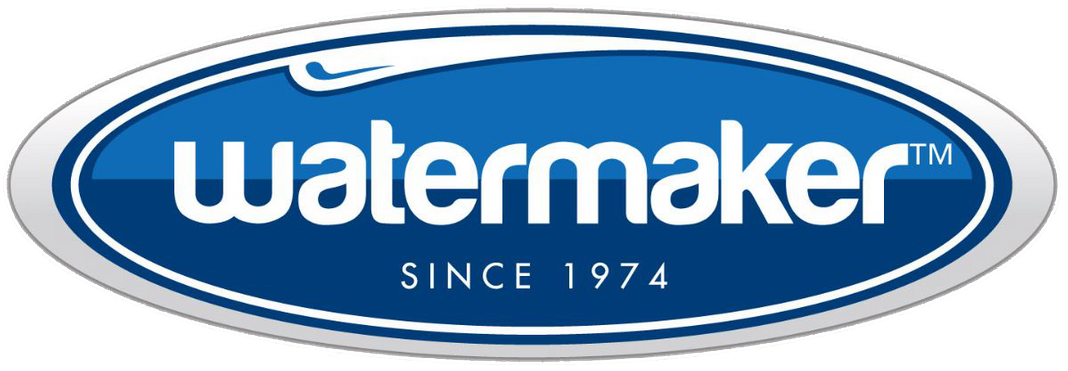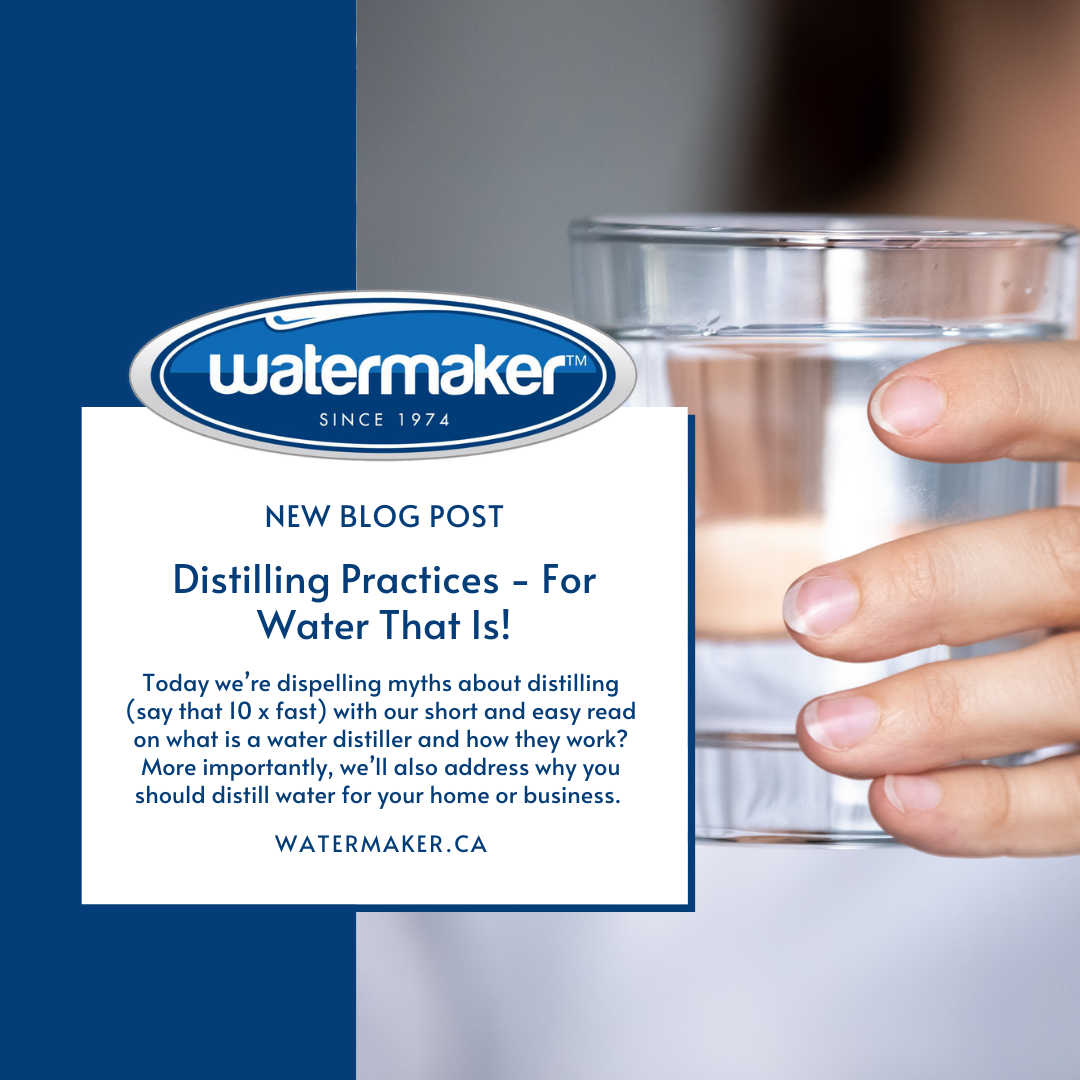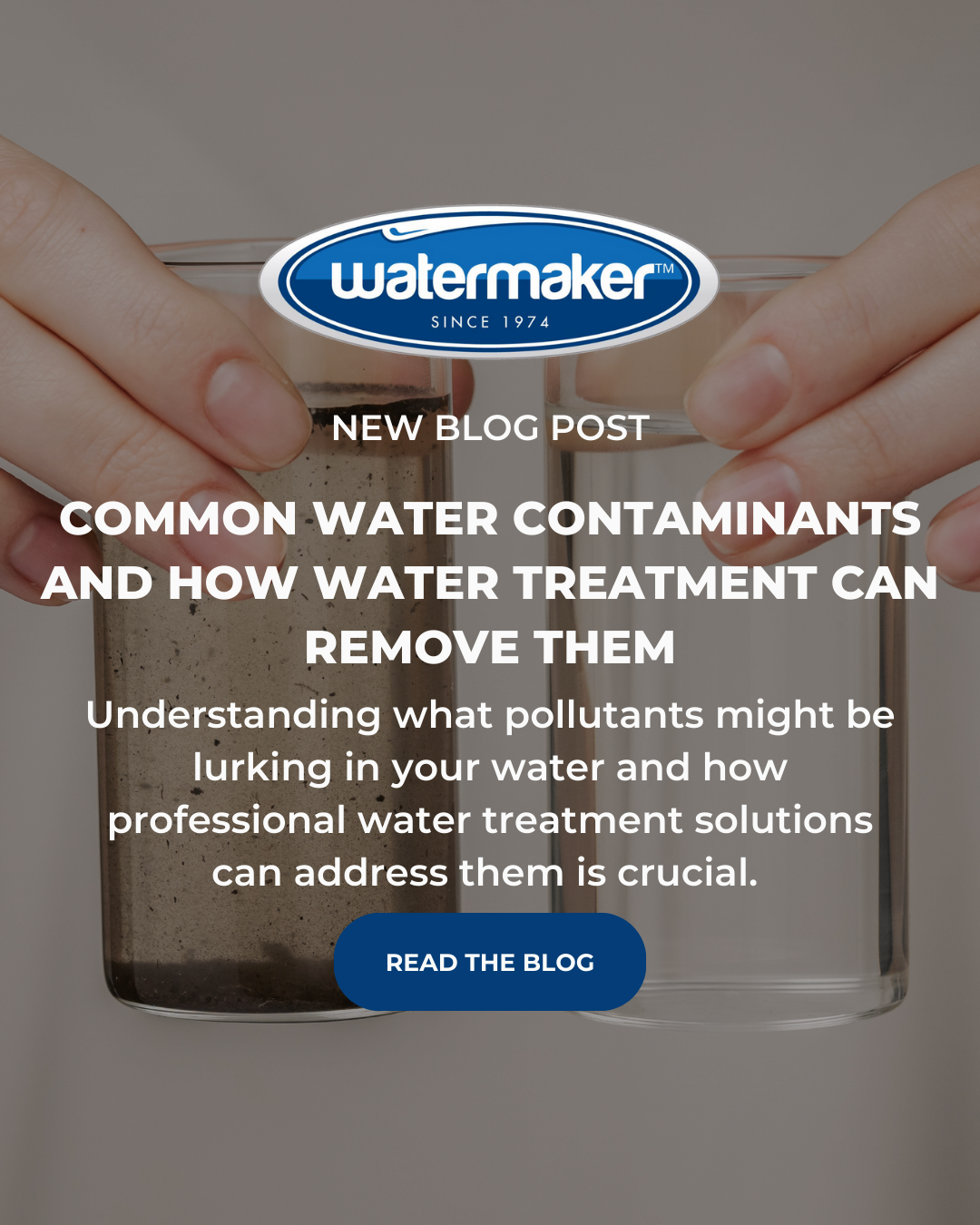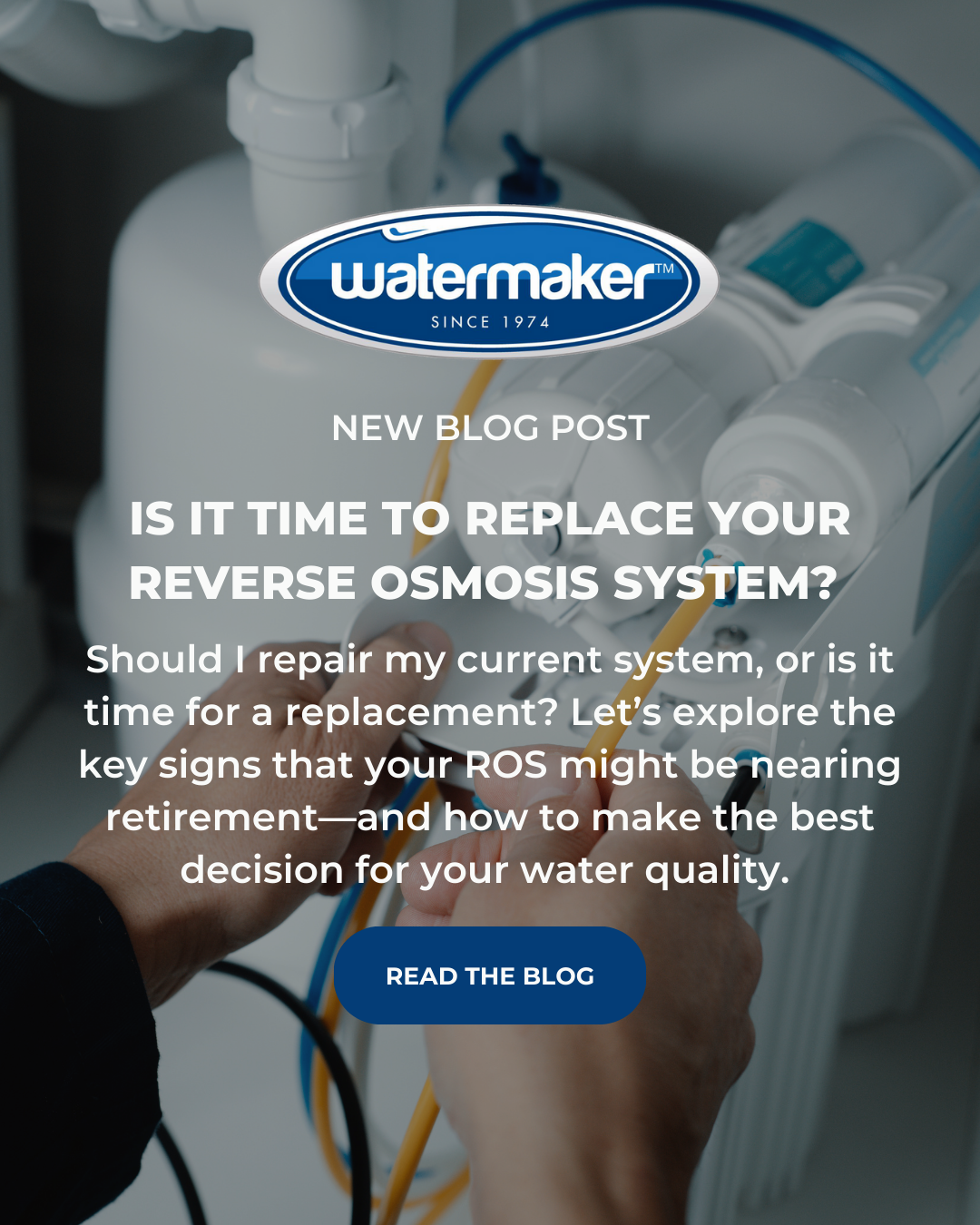Distilling Water Practices
If you’ve watched one too many movies, or you are an avid reader, it could be that the word “distilling” calls to mind the practice of making moonshine. Alternatively, perhaps the words “distilled water” make you think of hospitals and antiseptics. Either way, today, we’re dispelling myths about distilling (say that 10 x fast) with our short and easy read on what is a water distiller and how they work. More importantly, we’ll also address why you should distill water for your home or business.
Water distillers are a relatively easy way to ensure your water supply is clear, clean and free from any unwanted materials. In fact, distillation is one of the oldest known methods of water purification and relies on evaporation as the main method of eradicating impurities from water. People have been distilling water for centuries. Literally. It’s also a relatively natural process.
There are three main steps:
- Water – Collected water is heated to boiling
- Vapour/Steam – the resulting vapour or steam leaves behind inorganic materials that no one wants to drink, such as impurities that may cause gastro symptoms, arsenic, lead, metal and other contaminants
- Condensation/Purified Liquid – the steam is collected as condensation becoming a purified liquid which is then considered distilled water.
A water distiller is an at-home method of easily purifying your drinking water for you – usually at source, making it simple to provide your family with safe, accessible tap water throughout your home. The systems work similarly to the process we’ve already described but, these days, are augmented by an additional carbon or ozonation filtration process. The activated carbon helps to capture any final contaminants that may have made it through the distilling process.
Why Can’t I Just Boil Water?
Boiling is, in fact, a great method of helping to clean water and is something you will often hear in news reports after a natural disaster of some sort, where the government will advise the community to boil water. However, while it will get rid of bacteria and viruses – it’s more challenging to eliminate solid waste, chemicals and heavy metals. Only distillation can truly offer a bottle of water that is free of all impurities. Distilled water is also an excellent source of water for use with infant formula. Believe it or not, in addition to better drinking water, it creates streak-free windows and glass surfaces when used as part of your cleaning routine! Because it has been demineralized, some do describe the taste as “flat,” but this is generally not perceived as a deterrent to enjoying a glass of highly purified water!
At Watermaker, we offer distilled bottled water in a variety of sizes and available through Pick-Up options at our storefront or by delivery. Our process includes an additional layer of distilled water passing through ozonation, ensuring all bacteria and viruses are killed. Ozonation, like the distilled water process, is also a natural way to improve drinking water and has been around for as long as distillation. We won’t provide yet another chemical lesson in this blog but invite you to visit our website if you are super curious to learn more! It comes in 18L, 11L, 10L and 4L bottles and is also available via bulk distilled water delivery.
If you’ve noticed cloudy water, a distinct taste or a foul odour in your water supply, it might be time to think about distilling – no, not that kind! We mean distilled water as a clear, clean and safe supply of drinking water for your family. It’s not “moonshine,” and it’s not “hospital water,” but it might be a water source that’s just right for you!



